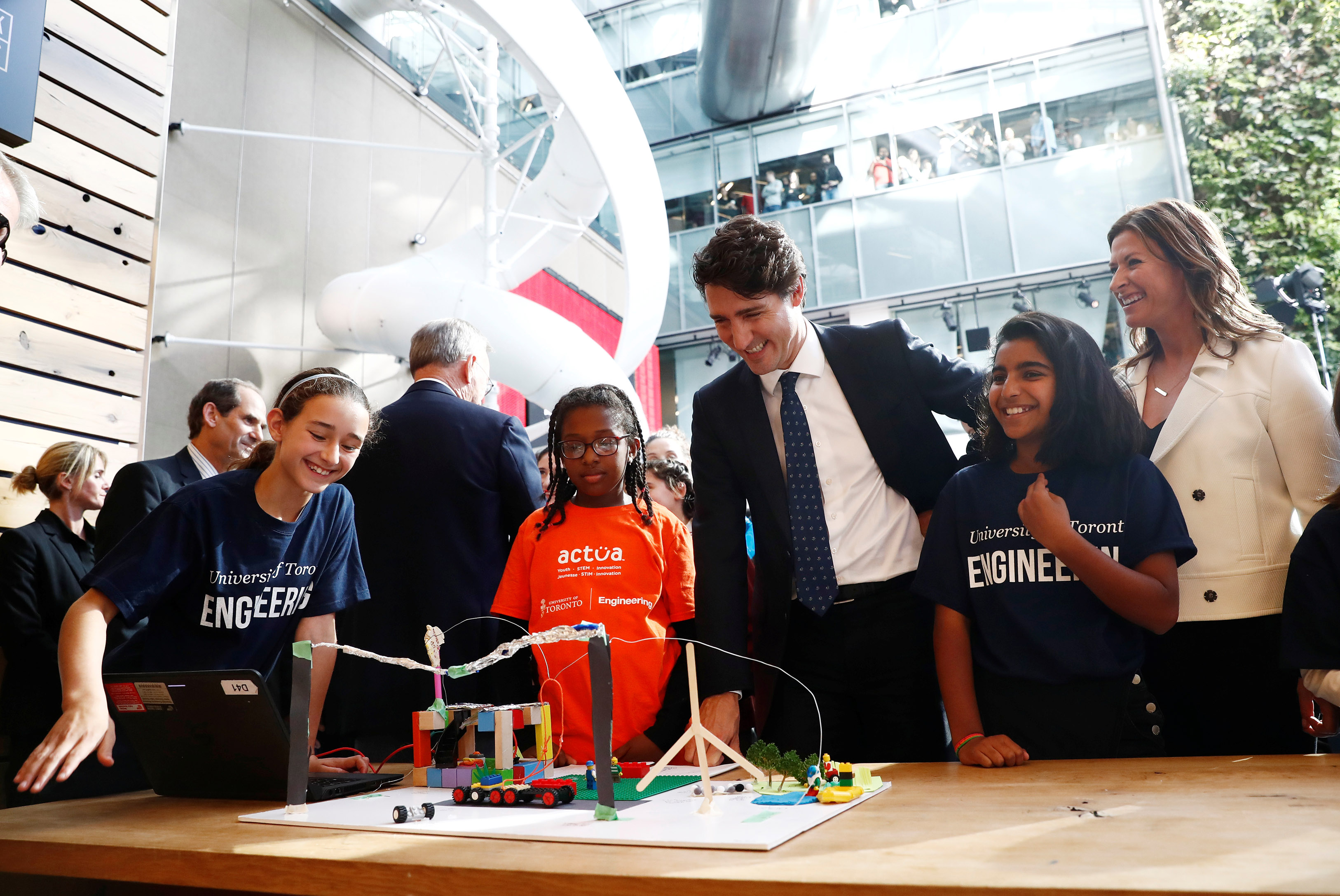Innovation and economic growth
Applying blockchain technology for social good. Considering the pros and cons of smart cities. Helping Canada become more digitally competitive. Redesigning education for a changing global economy. These are the kinds of multidisciplinary challenges that Munk School students and scholars are investigating as we help to mobilize academic research into the broader community and connect Canadian innovators to the global marketplace.
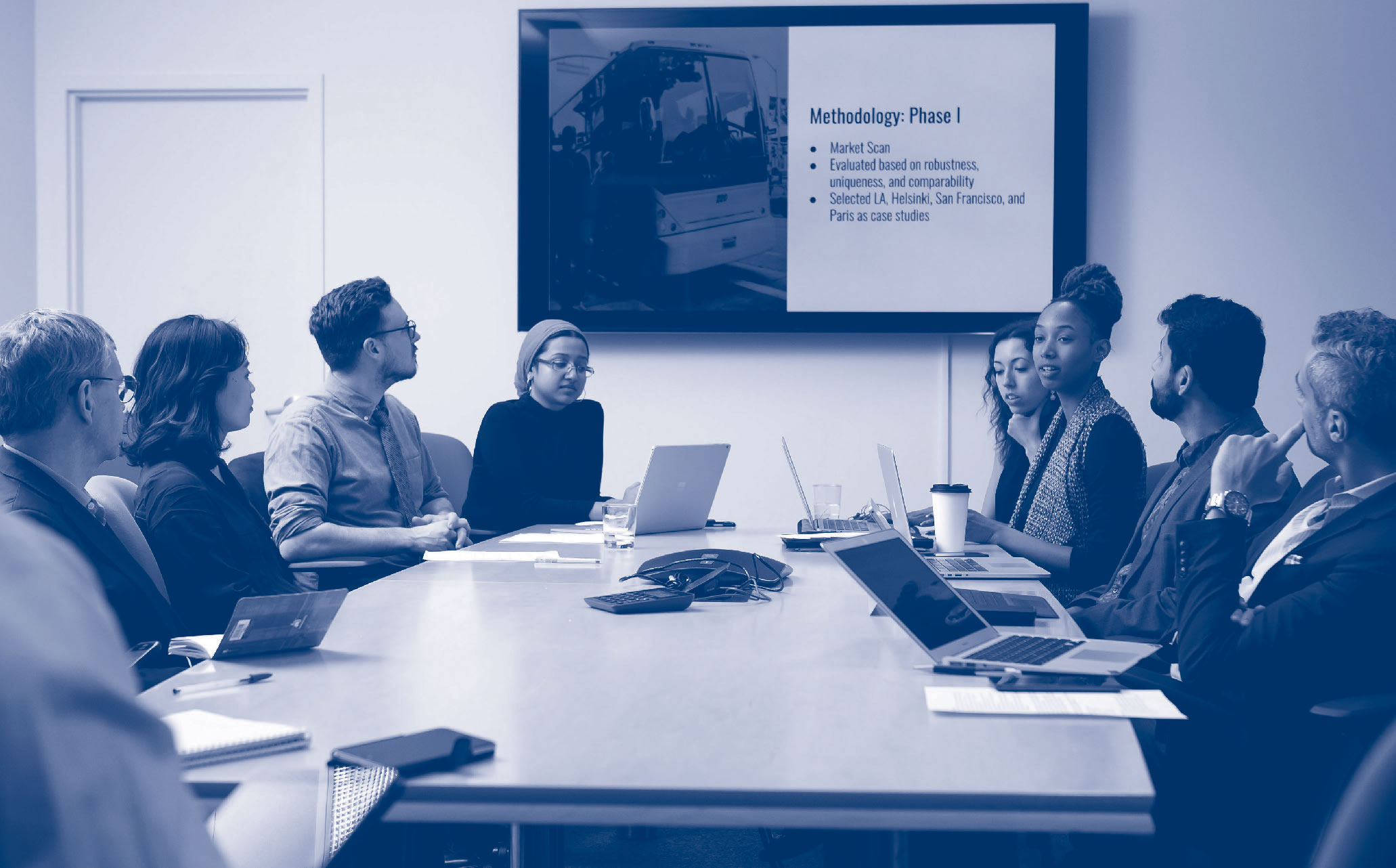
Photo: Dhoui Chang.
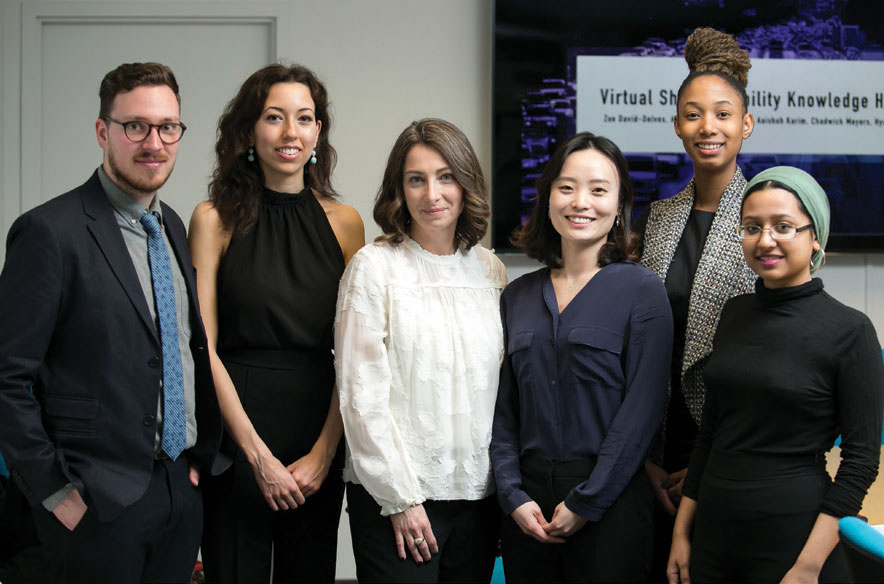
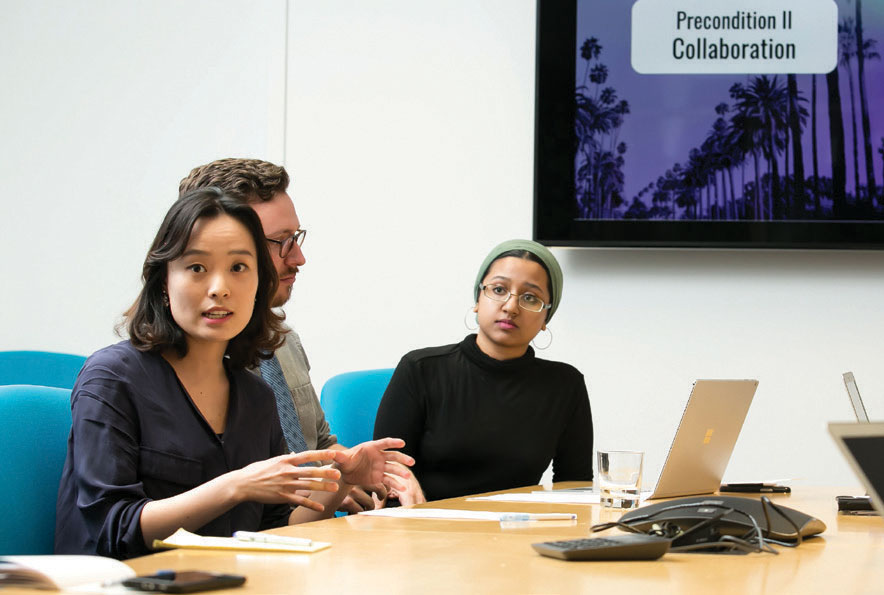
Top: MGA students, guided by Prof. Shiri Breznitz, help address real-world challenges posed by MaRS Data Catalyst. Left to right: Chadwick Meyers, Ashley-Nicole Harrison, Prof. Shiri Breznitz, Hyuna Yi, Zoe David-Delves and Aaishah Karim.
Photos: Dhoui Chang.
Innovative Capstones
Among the MGA Capstone Projects offered at the Munk School in 2017, four explored innovation themes. Guided by Prof. Shiri Breznitz, MGA students helped to address real-world challenges posed by the following clients:
- MaRS Data Catalyst explores policy initiatives for the digital economy as part of Toronto’s MaRS Discovery District, a globally recognized centre of innovation. A first-time client of the MGA Capstone program, the data think tank wanted help in creating a knowledge hub where residents of the Greater Toronto and Hamilton Area could access integrated transit information. After studying other cities’ solutions, students proposed a data-sharing model that would help people plan the most efficient ways to get from A to B. MaRS Data Catalyst is reviewing how to translate their recommendations into policy – and then into a viable technology.
- MaRS Solutions Lab, another initiative of the MaRS Discovery District, sought help from MGA Capstone students in analyzing the innovation ecosystem that has developed over the past decade along the Toronto-Waterloo corridor. After researching comparable regions in the U.S., Sweden, China and other countries – including through interviews with key players – the students offered their insights on how to raise the global profile of what is arguably Canada’s premier innovation cluster.
- Ontario’s Ministry of Economic Development and Growth asked MGA students to help investigate the potential impact of fintech disruptors on Canada’s financial services sector, which is largely centred in Toronto. Notwithstanding the strength of Canada’s financial system, epitomized by the Big Five chartered banks, how easy would it be for newcomers – whether innovative startups or established tech giants – to penetrate the Canadian marketplace? Through extensive background research and interviews with industry representatives, students provided ministry officials with new insights into potential sources of disruption.
- Grand Challenges Canada, a not-for-profit that fosters health and economic development solutions in the developing world, invited MGA students to evaluate a number of projects that have been funded to scale over the past five years, assessing their impact and long-term sustainability. After interviewing representative stakeholders, the Capstone team shared its findings and proposed a matrix of factors that Grand Challenges Canada could use to better gauge which programs are succeeding and which require additional attention.
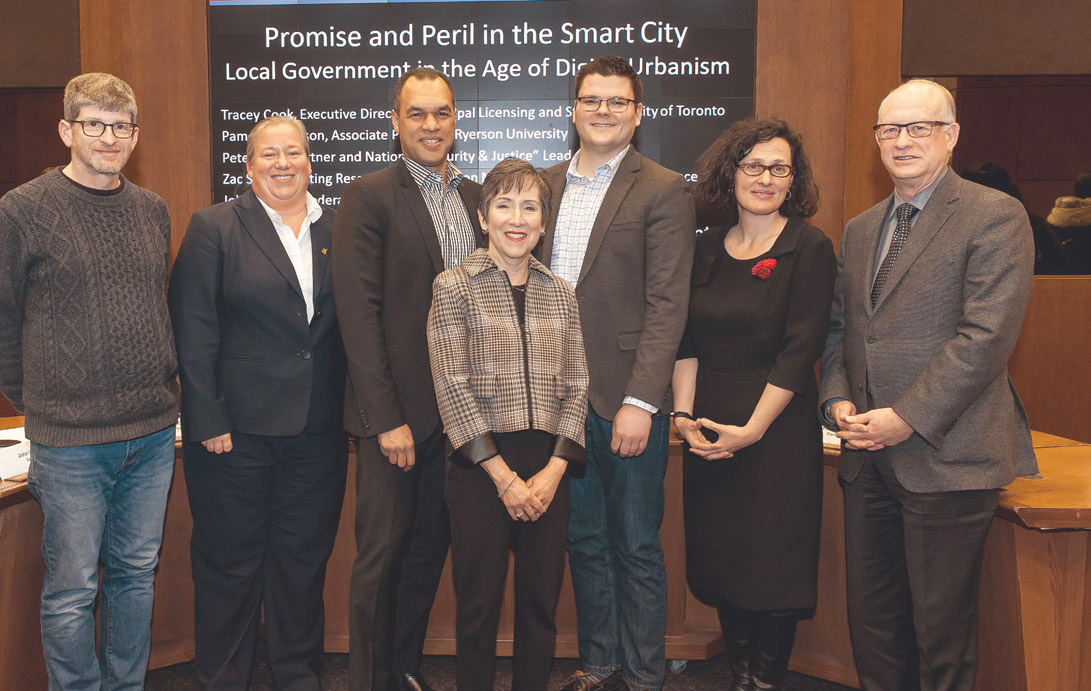
Promise and Peril in the Smart City (left to right): John Lorinc, senior editor, Spacing; Tracey Cook, executive director, Municipal Licensing and Standards, City of Toronto; Peter Sloly, partner and national Security & Justice lead, Deloitte; Enid Slack, director, Institute on Municipal Finance and Governance; Zachary Spicer, visiting researcher, Institute on Municipal Finance and Governance; Pamela Robinson, associate professor, School of Urban and Regional Planning, Ryerson University; and David Wolfe, co-director, Innovation Policy Lab, Munk School of Global Affairs.
Photo: Lisa Sakulensky.
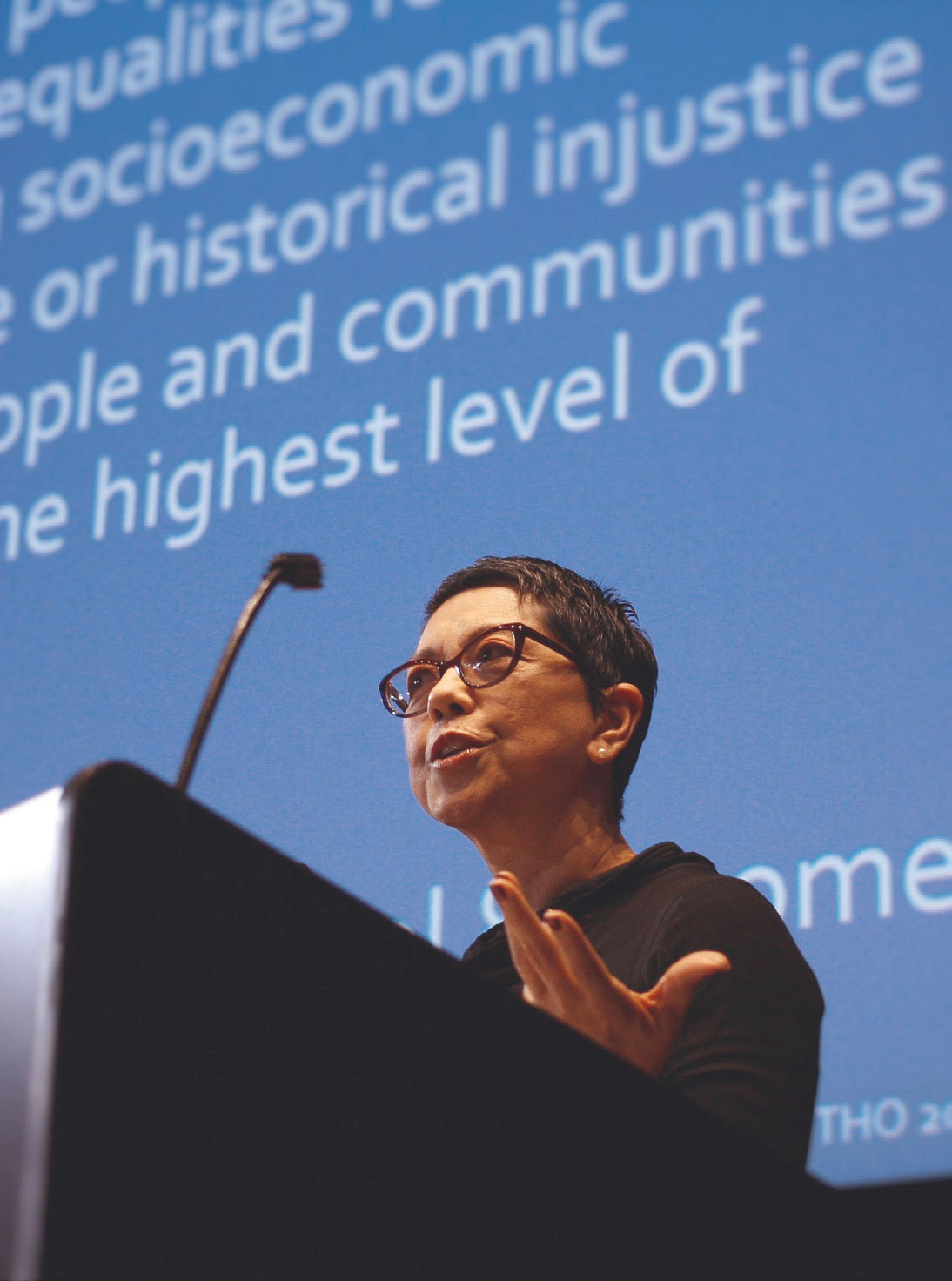
Understanding Smarter Cities: Prof. Patricia O’Campo, Social & Behavioural Health Sciences Division, Dalla Lana School of Public Health.
Photo: Shayla Anderson.
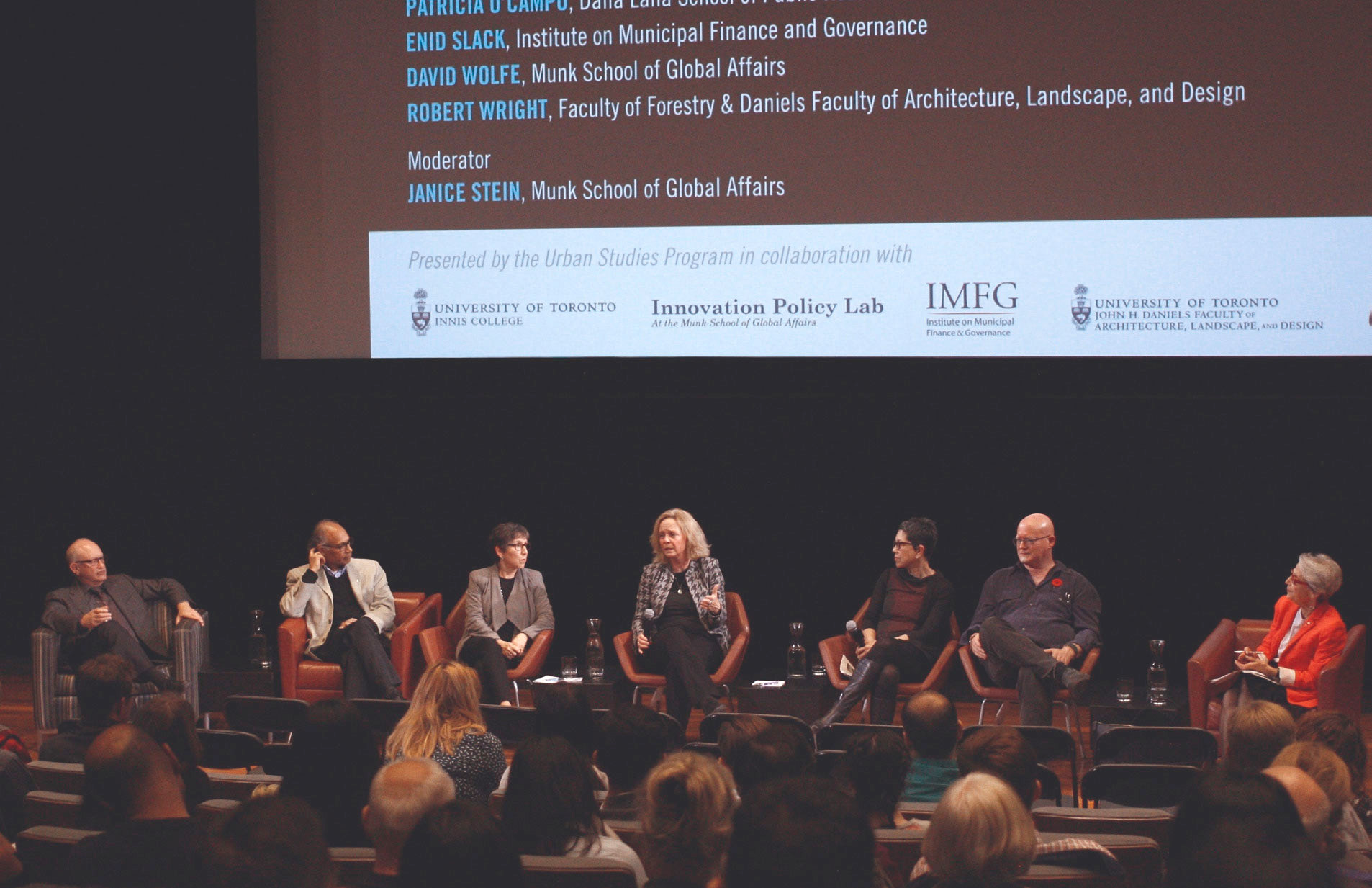
Understanding Smarter Cities (left to right): David Wolfe, co-director, Innovation Policy Lab, Munk School of Global Affairs; Kumar Murty, professor, Department of Mathematics, University of Toronto; Enid Slack, director, Institute on Municipal Finance and Governance; Judy Farvolden, program director, Transportation Research Institute; Patricia O’Campo, Social & Behavioural Health Sciences Division, Dalla Lana School of Public Health; Robert Wright, director, Centre for Landscape Research, John H. Daniels Faculty of Architecture, Landscape, and Design, and dean, Faculty of Forestry; Janice Stein, founding director, Munk School of Global Affairs.
Photo: Shayla Anderson.
Cities Get Smart
Over the past year, many scholars and groups across the Munk School examined the potential impacts of “smart cities” powered by data-driven technologies that promise to make urban life more efficient, hospitable and sustainable.
At a November 2017 event titled “Understanding Smart Cities: What Happens Next?” Prof. David Wolfe, co-director of the Innovation Policy Lab, and Dr. Enid Slack, director of the Institute on Municipal Finance and Governance (which is based at the Munk School) were among the U of T experts on a panel moderated by Prof. Janice Stein, founding director of the Munk School. A catalyst for the conversation was the news that Sidewalk Labs – which sits alongside Google under the Alphabet corporate umbrella – plans to develop an innovative, digitally enabled urban community on Toronto’s waterfront.
“The Sidewalk Labs investment is going to raise questions like who controls the development and the implementation of the technology, but most importantly, who controls the data,” Prof. Wolfe commented. Citing the recent warning from Prime Minister Justin Trudeau – at a U of T conference on artificial intelligence – that the pace of change was relentlessly accelerating, he added: “When we talk about smart city technologies, we have to think of it in that context.”
The topic was explored in even greater depth at a January 2018 event, “Promise and Peril in the Smart City: Local Government in the Age of Digital Urbanism.” Presented by the Institute on Municipal Finance and Governance and the Innovation Policy Lab, the panel discussion brought together representatives of municipal government, the private sector and the academic community – including Dr. Zachary Spicer, a visiting researcher at the institute and a research associate with the Innovation Policy Lab.
Panellists discussed how using technology to deliver municipal services and governance holds tremendous promise for creating efficiencies, engaging community members and managing scarce resources. At the same time, though, the push for smart cities risks increasing inequity – the so-called “digital divide” – and allowing too much private control of personal data and urban space. All agreed on the need for new forms of regulatory oversight and a strong public voice in the decision-making around adopting smart solutions.
“There’s a lot of enthusiasm about being able to remake cities using technology and to rethink how they operate,” said Dr. Spicer. “In doing so, we can probably put cities on a more equitable foundation and create opportunity for people who don’t currently have it.”
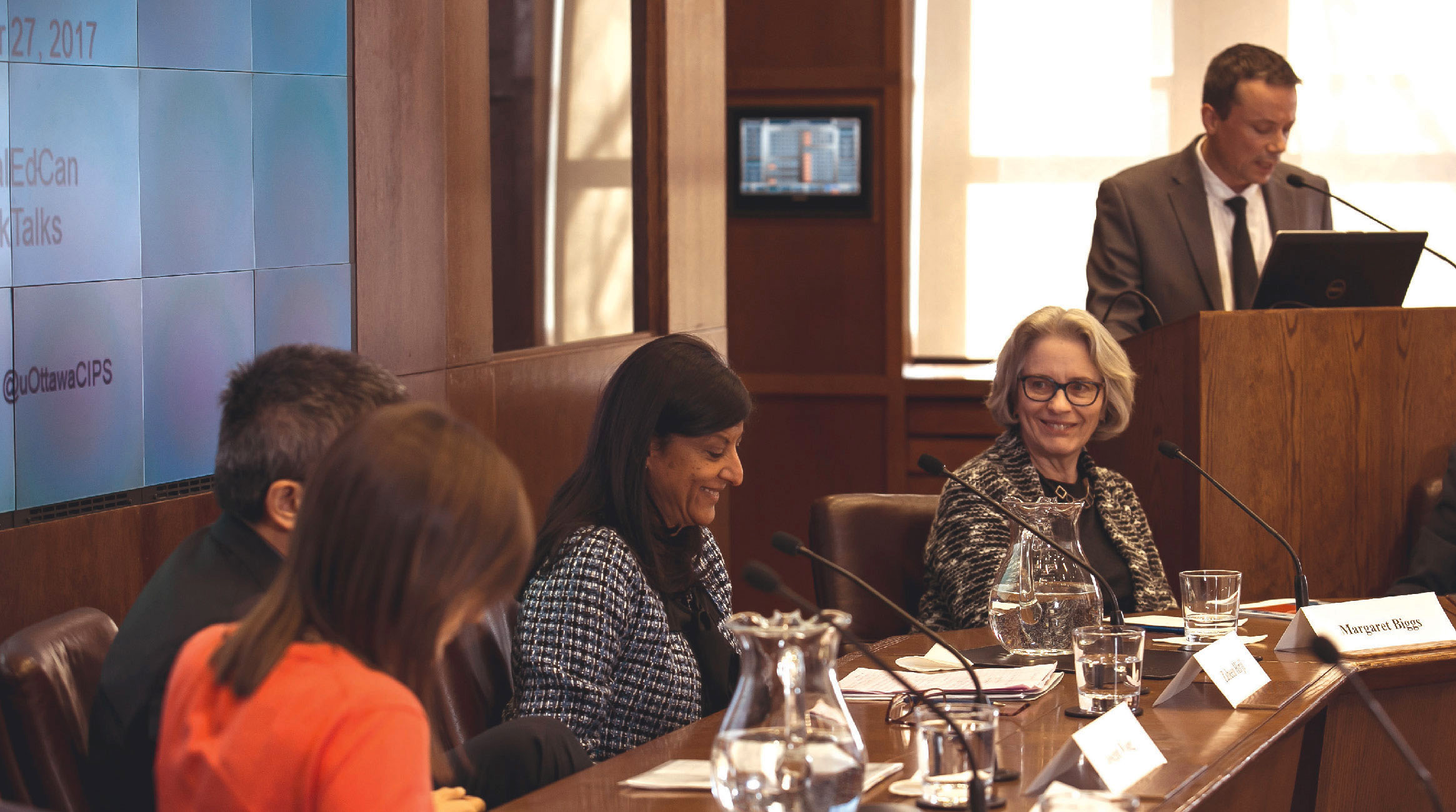
Prof. Randall Hansen announces the publication of a new education report. Left to right: Delila Biki´c, graduate Munk School of Global Affairs; Prof. Joseph Wong, Munk School; Zabeen Hirji, chief human resources officer at the Royal Bank of Canada, a member of the study group; and Margaret Biggs, group’s co-chair and Matthews Fellow in Global Public Policy, School of Policy Studies and Department of Political Studies, Queen’s University.
Photo: Dhoui Chang.
Educating Canadians
“Canada needs young Canadians to be equipped with the skills, competencies and global connections to succeed as leaders, workers and entrepreneurs in an increasingly complex world. Many of the benefits of international learning – including improved academic outcomes and employment after graduation – appear to be strongest for students from less-advantaged backgrounds. A carefully crafted and adequately funded global education strategy would boost the participation of less-advantaged students in international learning, and would equip young Canadians from all walks of life to succeed both at home and abroad.”
With these comments, Prof. Randall Hansen, interim director of the Munk School, announced the November 2017 publication of a new report, Global Education for Canadians. It was produced by the Study Group on Global Education, an independent team of educational leaders, business executives and policy experts from across Canada, established under the auspices of the Munk School and the Centre for International Policy Studies at the University of Ottawa. Prof. Hansen and Prof. Margaret Biggs wrote the report’s preface.
The report calls for a dramatic increase in the number of Canadian university and college students participating in international study and traineeship experiences abroad. Such experiences are considered vital to preparing young Canadians for the challenges of an increasingly complex and competitive world. A more strategic approach to global education will help to:
- Foster the advanced skills that Canadian companies are seeking, including adaptability, resilience, teamwork, intercultural awareness and effective communications.
- Build the global connections that Canada requires in a world of increasing competition and diversified trade.
- Reinforce the values of openness and inclusion that are essential to Canada’s success as a diverse and prosperous society in a time of rising intolerance.
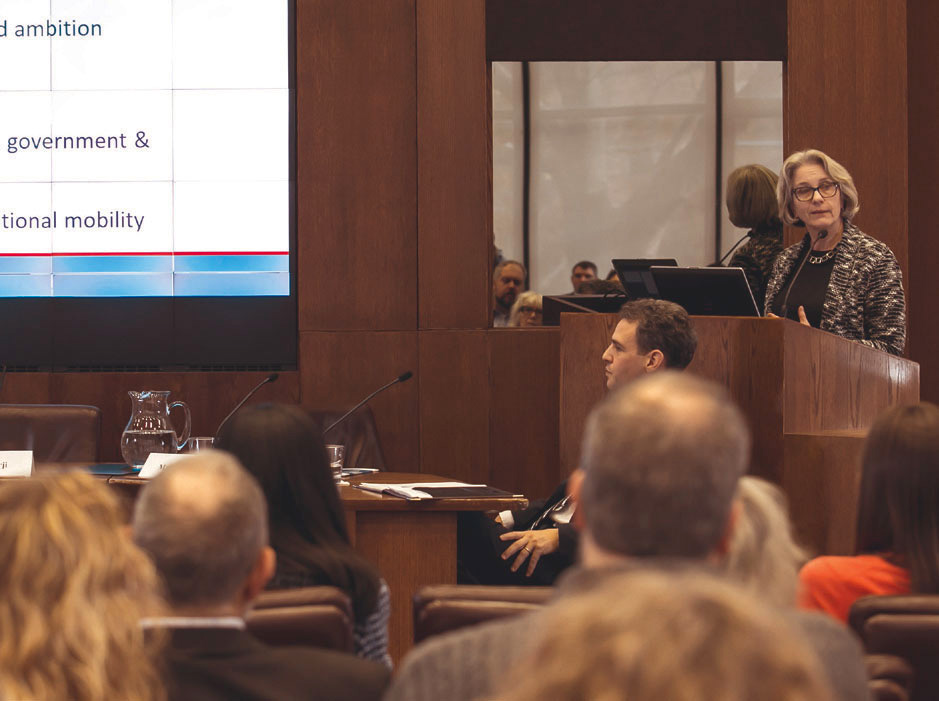
Prof. Margaret Biggs
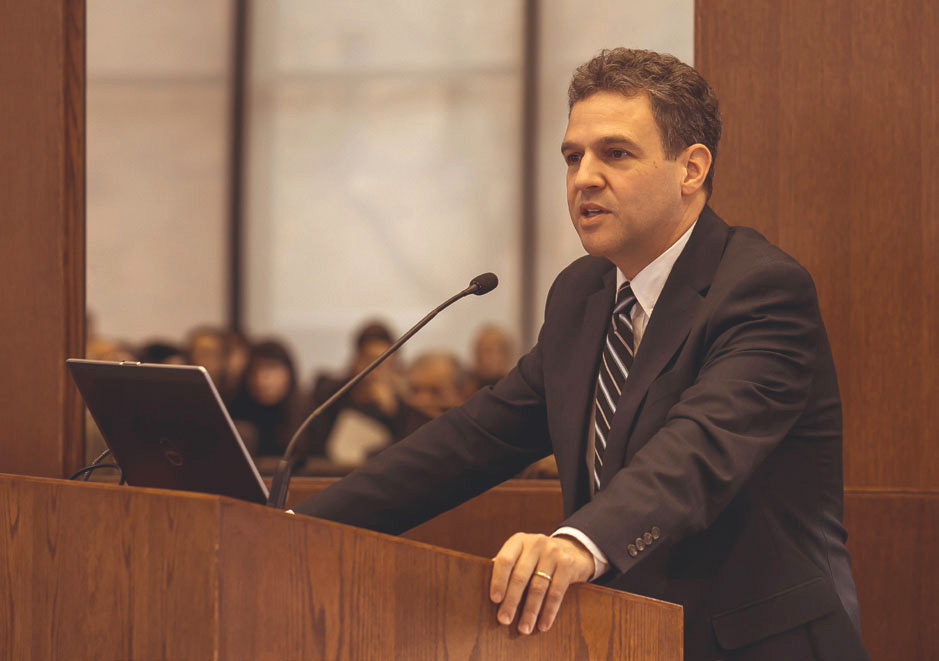
Prof. Roland Paris, group co-chair and professor of international affairs at the University of Ottawa.
Photos: Dhoui Chang.

